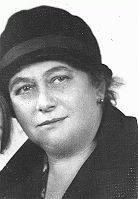You searched for: Liberation
<< Previous | Displaying results 926-950 of 1270 for "Liberation" | Next >>
-
Laura Litwak
ID CardLaura was the second of five children born to religious Jewish parents in the industrial city of Lvov. She was often called affectionately by her nickname, Lorka. Coming from an educated family living in a multi-ethnic part of Poland, she grew up speaking Polish, Russian, German and Yiddish. As a young woman, she earned a humanities degree from St. Nicholas University in Lvov. 1933-39: In April 1935 Laura became Mrs. Daniel Schwarzwald. Her husband was a successful lumber exporter, and they lived in a…
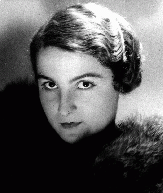
-
Max Diamant (now Josef Burzminski)
ID CardMax was born to a Jewish family in the Austrian capital of Vienna. When he was a small child his family moved to Przemysl, an urban center in southeastern Poland with a largely Jewish population. Max spent the remainder of his childhood there; his parents ran a small grocery and cafeteria to support their five children. 1933-39: The Germans reached Przemysl on September 14, 1939. It was a brilliant sunny day when planes suddenly appeared; Max's family thought the planes were their own until they began…
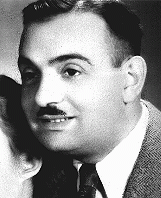
-
Johanna Falkenstein Heumann
ID CardThe oldest of five children, Johanna was born to Jewish parents living in a small town near Cologne. Her father owned a cigar factory. After Johanna graduated from high school, she worked in a bank in Cologne. At 22 she married Carl Heumann and the couple settled in the village of Hellenthal near the Belgian border. There they owned a general store. The couple had two daughters, Margot and Lore. 1933-39: A year ago Johanna's family moved to nearby Bielefeld, and she enrolled Margot and Lore in the city's…
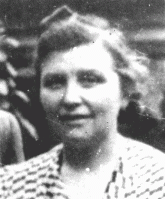
-
Josef Malnik
ID CardRaised in a Jewish family, Josef lived with his wife, Feiga, in Kovno, a cosmopolitan city that was picturesquely situated at the juncture of two rivers and was known as the "Little Paris." Josef was a barber, his wife was a beautician, and together they ran a shop in downtown Kovno. 1933-39: Every day Josef and Feiga walk to their shop which is not far from their house. It's hard work being a barber--Josef is on his feet most of the day, seven days a week including a couple of hours on Sunday. He has…
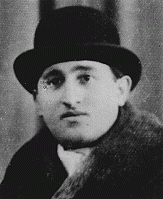
-
Margot Heumann
ID CardThe older of two girls, Margot was born to Jewish parents living in a village close to the Belgian border. The Heumanns lived above their general store. Across the street lived Margot's grandfather, who kept horses and cows in his large barn. When Margot was 4, her family moved to the city of Lippstadt. As a young girl, she learned to swim in the Lippe River, which flowed behind their garden. 1933-39: When Margot was 9, her family moved to the nearby city of Bielefeld, where she was enrolled in public…
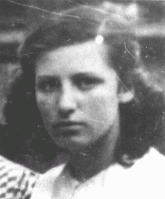
-
Sabina Low (Green)
ID CardSabina was one of four children born to a Jewish family in the Polish town of Ulanow. Her father was a landowner and cattle merchant in the area. The Jewish community in Ulanow was active, with many of its own organizations and a large library. Sabina attended public school in the morning and a private Jewish school in the afternoon. 1933-39: The public school was open Saturdays, but since it was the Jewish Sabbath, Sabina and her siblings didn't attend. They'd ask their Christian classmates for the…
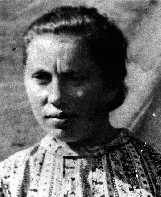
-
Jules Izrael Zajdenweber
ID CardJules grew up in a Jewish family in the industrial city of Radom, which had a large Jewish population and was known for its armaments industry. The Zajdenwebers spoke Polish and Yiddish at home. Jules' father was a textile salesman and his mother was a corset maker. Jules, whose nickname was Ulek, attended public schools in Radom and was a member of a Zionist youth organization. 1933-39: Jews weren't safe in certain neighborhoods. Some classmates at Jules's Polish state secondary school belonged to…
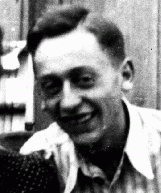
-
Charles (Karel) Bruml
ID CardCharles was born to a Jewish family in Prague, the capital of Czechoslovakia. His father owned several shoe factories there. Prague's Jewish minority enjoyed a great deal of cultural freedom because of the new democratic Republic. Though antisemitism still existed in Czechoslovakia, Prague was a relatively tolerant city. 1933-39: Charles' father's business thrived in Prague, and they lived well. Charles enjoyed painting as a child and decided to study at an art school in the city. On the morning of March…
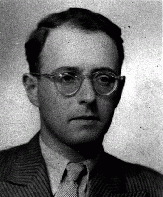
-
Chaim David Jegher
ID CardDavid was one of six children born to religious Jewish parents in Rona de Jos, a town in northwest Romania. The Jeghers subsisted through a variety of enterprises. Besides farming, they bottled their own wine and brandy and produced dried fruit for distribution in Romania and in parts of Czechoslovakia and Hungary. David's father also ran a local transportation and delivery service. 1933-39: Religious school was from 6:30 to 8:00 a.m. David's mother would wait outside the building with some breakfast for…
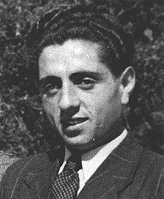
-
Ruth Gabriele Silten
ID CardGabriele was the only child of Jewish parents living in the German capital of Berlin. Her grandfather owned a pharmacy and a pharmaceuticals factory, where Gabriele's father also made his living. 1933-39: In 1938 the Nazis forced Ruth's grandfather to sell his factory and pharmacy for very little money to an "Aryan" German. After that, her father decided they should move to Amsterdam where it was safer for Jews. She was 5 years old and wanted to stay in Berlin. She didn't understand why she had to leave…
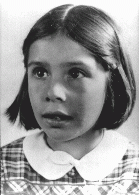
-
Fritz Silten
ID CardFritz was the youngest of two sons born to a Jewish family in the German capital of Berlin. In the late 1920s he earned a doctorate in chemistry and pharmacy. In 1931 he married Ilse Teppich, and in 1933 the couple had a daughter, Gabriele. 1933-39: Fritz worked in his father's pharmacy until 1938, when the Nazis forced them to sell the business for a fraction of its value to an "Aryan" German [Aryanization]. Leaving his parents behind was agonizing, but concern for the safety of his wife and daughter…
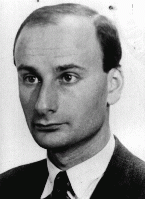
-
Ilse Silten
ID CardIlse, born Ilse Teppich, was the eldest of two daughters born to a Jewish family in the German capital of Berlin. Her father owned a dry cleaning business in the city. When Ilse finished secondary school, she was sent to a finishing school in Switzerland where she studied to be a photographer. In 1931 she married Fritz Silten. 1933-39: In 1933 Ilse gave birth to the couple's only child, a daughter named Gabriele. Five years later, when Fritz's father was forced by the Nazis to sell his business for a…
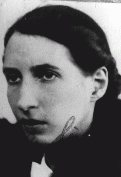
-
Ion Butnaru
ID CardIon was born to Jewish parents in a small, ethnically diverse city in east-central Moldavia [in Romania], a region known for its wine. Husi had a sizable and active Jewish population, which organized literary and artistic festivals and ran a local library. Ion's father was a wine maker and his side of the family had owned vineyards for at least three generations. 1933-39: Ion enjoyed helping his father in the family vineyards. He also did volunteer work at his local Jewish library. When he was 17, his…
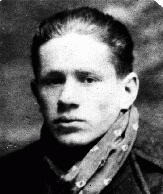
-
Wolf Himmelfarb
ID CardWolf was the eldest of three children born to Yiddish-speaking, religious Jewish parents in Koprzewnica, a small town in southern Poland. His father ran a grocery store, where his mother would help out on Thursdays. The store was located in the house of Wolf's grandmother, and Wolf, his brother, Izik, and sister, Chana, would play in a large yard in the back. 1933-39: Wolf started attending school a year late, at 8, so that he and his younger brother could share the same books. In the third grade, Jewish…
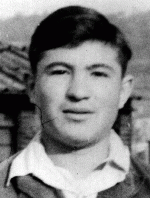
-
Jan Komski
ID CardJan was born to a Catholic family in the small Polish town of Bircza. His father, a World War I veteran, moved the family to Brzozow shortly after the war. Brzozow was a small manufacturing town in southeastern Poland. After graduating from secondary school, Jan enrolled at the Academy of Fine Arts in Cracow. 1933-39: Cracow was a beautiful old city; Jan studied its remarkable churches and synagogues in his classes. By September 1939, however, the war engulfed the beauty of Cracow. He left to escape the…
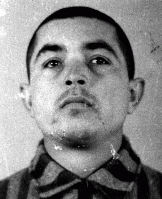
-
Helga Leeser
ID CardThe older of two sisters, Helga was raised by prosperous, non-religious Jewish parents in the small Catholic town of Duelmen in western Germany. Her family owned a linen factory. Before marrying Helga's much older father in 1927, her mother had been a Dutch citizen. As a child, Helga looked forward to vacations in the Netherlands with its comparatively relaxed atmosphere. 1933-39: At age 6 Helga began attending a Catholic elementary school. Antisemitism wasn't a problem until the night of November 9, 1938…
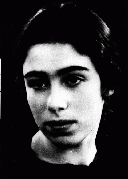
-
Max Liebster
ID CardMax was one of three children born to a Jewish family living in a small town in the Hessian part of Germany. His father was originally from Poland. After eight years of public education, Max completed three years of business school and learned to become a window decorator. In 1929 he found work in Viernheim, a village near Mannheim. 1933-39: Max worked for a clothing store where he was in charge of window dressing. Except for the weekends when there were Nazi marches, life was quiet in Viernheim. Right…
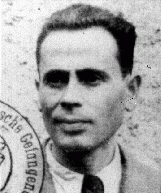
-
Edit Gruenberger
ID CardEdit was the second of three children born to Hungarian-speaking Jewish parents in the city of Kosice in the southeastern part of Czechoslovakia known as Slovakia. She grew up a Czechoslovak citizen. As a young girl, she attended a Jewish elementary school. Her father was a tailor whose workshop was in the Gruenbergers' apartment. 1933-39: After Edit finished elementary school, she entered secondary school. The language of instruction was Slovak and Jews faced no discrimination until November 1938 when…
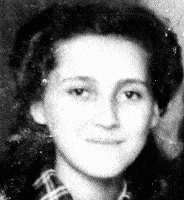
-
Jeno Brieger
ID CardJeno was born into a large, religious Jewish family in the village of Nagyhalasz in northeastern Hungary. The Briegers spoke Yiddish and Hungarian. After Jeno's mother died, his father remarried and the family moved to the town of Nyiregyhaza where his father owned and operated a hardware store. Nyiregyhaza had a Jewish population of 5,000. 1933-39: Jeno was the oldest son in a household of seven children. Nyiregyhaza was a rural town in which people still used horses and buggies. Jeno attended a…
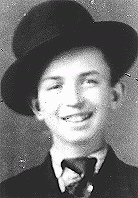
-
Gyula (Gyuszi) Brieger
ID CardGyula was also known as Gyuszi. He was born into a large religious Jewish family in the village of Nagyhalasz in northeastern Hungary. The Briegers spoke both Yiddish and Hungarian. After Gyula's mother died, his father remarried and the family moved to the town of Nyiregyhaza, where his father owned and operated a hardware store. Nyiregyhaza had a Jewish population of 5,000. 1933-39: Gyula was the second oldest son in a household of seven children. Nyiregyhaza was a rural town in which people still used…
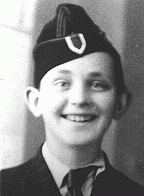
-
Felix Krakauer
ID CardFelix was one of six children born to Jewish parents in a small Moravian town, where his father ran a dry goods and clothing store. The family spoke Czech and German at home and Felix attended German-language schools. As a youth, he belonged to a Zionist club and liked to ski. He graduated from an international trade school in Vienna before settling down in the Moravian capital of Brno. 1933-39: During the 1930s Felix married a Christian woman from the town of Hodonin. When Felix's father retired in 1938,…
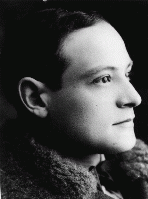
-
Hildegard (Hilda) Krakauerova Nitschkeova
ID CardHilda was the youngest of six children born to Jewish parents in a small Moravian town, where her father ran a dry-goods and clothing store. Her family spoke both Czech and German at home. Hilda was a tomboy when she was growing up, and competed on the Maccabi swim team. She attended a public secondary school in Hodinin, and wanted to pursue a career as a dental technician. 1933-39: In February 1933 Hilda moved to the Moravian capital of Brno where she attended dental school. On December 23, 1935, she…
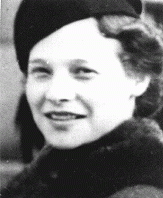
-
Irena Elzbieta Wos
ID CardIrena was the second of four children born to religious Roman Catholic parents in Poland's capital of Warsaw. Irena's father owned a successful textile business. When Irena was 10, her family moved to a comfortable apartment near the Royal Castle and the Vistula River. In 1930 Irena entered a private grade school. 1933-39: At 14 Irena began secondary school. She was a good student and wanted to be a doctor. On September 1, 1939, the day she was supposed to begin the new school year, the Germans attacked…
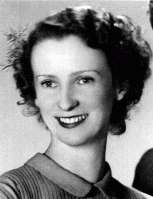
-
Moishe Krol
ID CardMoishe was born to Yiddish-speaking Jewish parents in Radom. The industrial city was known for its armaments factories in which Jews could not work and for its leather industry in which many Jews did. When Moishe was a teenager, he finished school and apprenticed to become a women's tailor. Moishe earned a certificate enabling him to be a licensed tailor and settled down in Radom. 1933-39: By 1939, Moishe had become a master tailor specializing in women's clothes. He remembers local antisemitic…
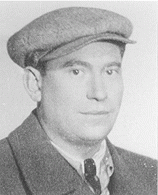
-
Wilma Schlesinger Mahrer
ID CardWilma was the oldest of two daughters born to German-speaking Jewish parents. She married Gyula Mahrer, a Hungarian Jew who had fought in the Hungarian army during World War I. The couple lived in the Hungarian capital of Budapest, where they raised two daughters. The Mahrers lived near their eldest daughter, Kornelia, who had married in 1928. 1933-39: Wilma's first grandchild, Maria, was born on Wilma's 55th birthday. By 1936 Wilma had five grandchildren, three of whom lived in Budapest with her daughter…
